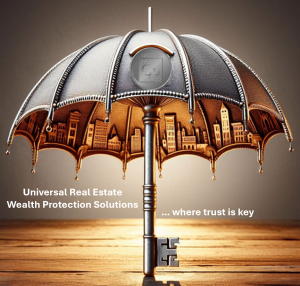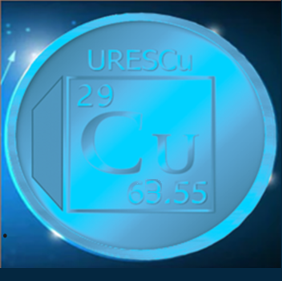

- Accredited Investor
- Address
- After Repair Value
- ARV
- Airdrop
- Anti-Money Laundering
- AML
- Appreciation
- As-is
- Ask-Me-Anything
- AMA
- Asymmetric Key Cryptography
- Atomic
- Automated Market Maker (AMM)
- Bad Debt Buying
- Bargain and Sale Deed
- Barter
- Barter currency
- Barter cryptocurrency
- Basis
- Basis Point
- Bitcoin
- Blockchain
- Bonding Curve
- Bricked Funds
- Bridge Loan
- Burn
- Cashflow
- Cash-on-cash return
- Closely Held
- Coin
- Collateralized Currency
- Collateralized Debt Obligation
- Consensus Protocol
- Contract Account
- Control
- Credit delegation
- Crypto-asset
- Crypto exchange
- Cryptocurrency
- Cryptographic Hash
- Current Condition Value
- CCV
- dApp
- Debt
- Decentralized Autonomous Organization
- DAO
- Decentralized Exchange
- DEX
- Decentralized Finance
- DeFi
- Deed
- Deed of Trust
- DOT
- DeFi
- DeFi Legos
- Depreciation
- Digest
- Direct Incentive
- Double Spend
- Due Diligence
- Dutch Auction
- Equity
- Equity token
- ERC-20
- ERC-721
- ERC-1155
- Escrow
- Ethereum
- ETH
- Ethereum 2.0
- Ethereum
- Externally Owned Account
- EOA
- Factoring
- Fair Market Value
- FMV
- Fiat Currency
- Fintech
- Flash Loan
- Flash swap
- Fork
- Fungible
- Non-fungible
- Gas
- Geoblock
- Governance Coin
- Governance Token
- Governance Token
- Governance Coin
- Grant Deed
- Halting Problem
- Hash
- Hexadecimal
- Horizontal Scaling
- Impermanent Loss
- Incentive
- Initial Defi Offering
- IDO
- Initial DeFi Offering
- IDO
- Initial Exchange Offering
- IEO
- Invariant
- Keeper
- Know Your Business
- KYB
- Know Your Customer (KYC)
- KYC
- Layer 2
- Leasehold
- Liquidity
- Liquidity Provider
- LP
- Mainnet
- Mezzanine Debt
- Miner
- Miner Extractable Value
- Mint
- Mortgage Deed
- Multi-family Housing
- MFH
- Networked Liquidity
- Node
- Non-fungible
- Fungible
- Non-Fungible Token
- NFT
- Non-recourse loan
- Nonce
- Note Brokering
- Buying
- Optimistic Rollup
- Option
- Oracle
- Order Book Matching
- Perpetual futures contract
- Points
- Private Offering
- Proof of Stake
- PoS
- Proof of Work (PoW)
- PoW
- Quitclaim Deed
- Real Estate Owned
- REO
- REXNET
- Router Contracts
- Scaling Risk
- Schelling-Point Oracle
- Seller financing
- Sharding
- Single Family Housing
- Single Family Residence
- SFH
- Single Family Residence
- Single Family Housing
- SFR
- Slashing
- Slashing Condition
- Smart Contract
- Sophisticated Investor
- Sovereign Lien
- Special Purpose Deeds
- Specie
- Stablecoin
- Staked Incentive
- Staking
- Swap
- Symmetric Key Cryptography
- Testnet
- Token
- Token vs coins
- Trading pairs
- Transparency
- TROPTIONS
- XTROPTIONS
- Utility Token
- Value
- Vampirism
- Vault
- Velocity of Capital
- Vertical Scaling
- Vet
- Vett
- Wallet
- Crypto-wallet
- Warranty Deed
- Wholesaler
- Yield Farming
Different types of warranty deeds are used to offer various legal protections to the grantor, in the event there’s a problem or defect with the title once it’s been transferred. Warranty deeds come with different levels of protection, and are split into two distinct categories: General Warranty Deed – Typically used in residential real estate transactions, a general warranty deed guarantees that the seller has the full legal right to sell the property, and that the property is completely free and clear of debts, liens, or other encumbrances. This type of deed comes with the most significant protection for the grantee, and provides them legal recourse in the event an unsettled debt or issue with the deed arises. Special Warranty Deed – A special warranty deed protects a grantee against any issues or claims that might have arisen during the time the grantor owned the property entirely. It doesn’t apply to the entire history of the property, as the property’s whole history isn’t likely known by the current owner. Most often, this type of deed is used in the sale of residential real estate, or for commercial property. While not providing as much legal protection as a general warranty deed, it does: Assure that the grantor is the legal owner of the property title, and Guarantee that the property was not somehow encumbered during the time when the grantor had ownership.

